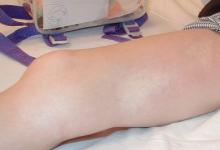Industry Press Releases - BMS, Abbvie, UCB, Janssen Save

The pharmaceutical companies will feature the results of their pivotal clinical trials and data analyses at ACR Convergence 2021. Below is a listing of some of their best studies for you to review and look for in the meeting. Often these become the pivotal studies for regulatory approval and the annual congresses are their first look.
Bristol Myers Squibb
- Deucravacitinib: Analyses from a Phase 2 study of deucravacitinib, a first-in-class, oral, selective tyrosine kinase 2 (TYK2) inhibitor, in patients with active psoriatic arthritis that shed light on the expected clinical profile of deucravacitinib and the pharmacodynamics of key biomarkers involved in disease pathogenesis.
- Orencia: Post hoc analysis of the ASCORE study in rheumatoid arthritis (RA), demonstrating that several baseline characteristics were associated with remission in patients with RA treated with subcutaneous Orencia.
- Health economics outcomes research of seropositive RA Medicare beneficiaries showed that among Medicare beneficiaries with seropositive RA, those on Orencia were more often persistent to their index treatment and had longer time to treatment discontinuation at 1 year compared to patients on tumor necrosis factor inhibitors or Janus kinase inhibitors.
Abbvie
Abbvie has 38 abstracts that will be presented at ACR 2021, with data on upadacitinib (RINVOQ), and rizankizumab (SKYRIZI) in these areas:
- Rheumatoid Arthritis
- Long-Term Safety and Efficacy of Upadacitinib or Adalimumab in Patients with Rheumatoid Arthritis: Results at 3 Years from the SELECT-COMPARE Study - Abstract #0828
- Sustainability of Response Between Upadacitinib and Adalimumab in Patients with Rheumatoid Arthritis: Results Through 3 Years from the SELECT-COMPARE Trial - Abstract #0837
- Sustainability of Response to Upadacitinib Among Patients with Active Rheumatoid Arthritis Refractory to Biological Disease-Modifying Anti-Rheumatic Drugs - Abstract #1694
- Psoriatic Arthritis
- Efficacy and Safety of Risankizumab for Active Psoriatic Arthritis: 24-Week Integrated Results From 2 Phase 3, Randomized, Double-blind Clinical Trials for CsDMARD-IR and Bio-IR Patients - Abstract #0453 Plenary Session
- Efficacy of Upadacitinib on Psoriatic Arthritis with Axial Involvement Defined by Investigator Assessment and PRO-Based Criteria: Results from Two Phase 3 Studies - Abstract #1945
- Ankylosing Spondylitis
- Efficacy and Safety of Upadacitinib in Patients with Active Ankylosing Spondylitis: 2-Year Results from a Randomized, Double-Blind, Placebo-Controlled Study with Open-Label Extension - Abstract #0924
- Safety
- Long-Term Safety Profile of Upadacitinib in Patients with Rheumatoid Arthritis, Psoriatic Arthritis, or Ankylosing Spondylitis- Abstract #1691
UCB
UCB will present 11 abstracts at ACR Convergence 2021, including new data on bimekizumab, a dual IL-17A and IL-17F inhibitor, and on CIMZIA (certolizumab pegol)
- An oral presentation will highlight three-year bimekizumab data in ankylosing spondylitis (AS) from the Phase 2b BE AGILE study and its open-label extension. Data show the long-term safety profile of bimekizumab in patients with AS was in line with previous observations, and clinical outcomes were maintained and consistent over three years of treatment. (abstract #0491 - Saturday, Nov. 6; 2:45-2:55pm ET)
- Bimekizumab in Patients with Psoriatic Arthritis: 3-Year Results for Overall and Tumor Necrosis Factor Inhibitor (TNFi)-Naïve Populations from a Phase 2b Open-Label Extension Study. (Abstract #1338 – Monday, Nov. 8; 8:30-10:30am ET)
- An e-poster detailing the first release of three-year results from the C-axSpAnd pivotal Phase 3 study evaluating the long-term safety and efficacy of CIMZIA in non‑radiographic axial spondyloarthritis (nr-axSpA). The analysis reports safety and clinical outcomes in nr-axSpA patients who entered the C-axSpAnd open-label safety follow-up extension. Data show CIMZIA improved signs and symptoms of nr-axSpA for up to three years, and there were no new safety signals. (abstract #0913 - Sunday, Nov. 7; 8:30-10:30am ET ).
- Development of a Deep Learning Algorithm for the Detection of Sacroiliitis on MRI in Patients with Active Axial Spondyloarthritis (Abstract #0157 – Saturday, Nov. 6; 8:30-10:30am ET)
Janssen
- Abstract 1803: Long-term Pooled Safety of guselkumab (GUS) in PsA - In pts with active PsA pooled across 3 RCTs, GUS demonstrated a favorable safety profile through up to 2 Y of treatment; the GUS safety profile in PsA was comparable to that observed through up to 5 Y of GUS in pts with moderate-to-severe psoriasis.
- Abstract 1805: GUS in PsA a 2Yr x-ray deep dive - In a population of biologic-naïve pts with active PsA enriched for greater risk of radiographic progression, GUS 100 mg (Q4W or Q8W) was associated with low rates of radiographic progression through 2 years. Pts achieving clinical response across several global measures of disease activity or normalized physical function at W100 had lower mean changes in total PsA-modified vdH-S scores compared with nonresponders.
- Abstract 1806: GUS PsA SOLSTICE study - PsA pts with TNFi-IR are typically difficult to treat. In the small cohorts of TNFi-experienced and TNFi-IR patients in DISCOVER-1, numerically higher response rates with GUS Q4W vs Q8W were seen at W24 for some response criteria. SOLSTICE, a Phase 3b, randomized, PBO-controlled trial, will evaluate the efficacy and safety of GUS Q4W and Q8W in a large cohort of adults with active PsA and IR and/or
intolerance to one prior TNFi. - Abstract 1329: GUS in PsA - Enthesitis + Dactylitis - Pts with PsA often present with concurrent enthesitis and dactylitis, both of which can be recalcitrant to treatment. GUS resolved enthesitis and dactylitis in substantial proportions of pts through W100. GUS-treated pts who achieved enthesitis resolution were more likely to achieve dactylitis resolution and vice versa.










If you are a health practitioner, you may Login/Register to comment.
Due to the nature of these comment forums, only health practitioners are allowed to comment at this time.